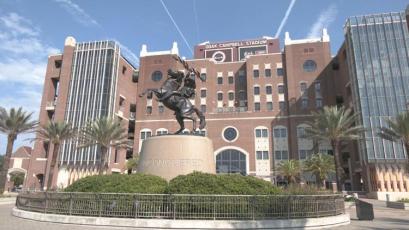Richard Doster
For the News-Leader

From the beginning, man was made to exercise dominion over the earth; he was to subdue it and develop its latent potential (Genesis 1:26-28; 2:15). Or, as theologian Mark Dever summarizes these passages, “God call[ed] all humans, as those made in his image, to fill the earth with his glory through creating what we commonly call culture.”
At the fall of man (Genesis 3:1-24), that work took an unfortunate turn. Rather than filling the world with God’s glory, we’ve longed to fill it with our own. Too often we’ve shaped institutions that praise us, and that satisfy our needs and sin-warped desires.
If we’re to change course; if, in our day, we hope to renew the character of business, politics, law, and education — we’ll have to live by principles that make little sense to the rest of the world. And that are likely to raise questions.
Jesus emphasized this throughout Scripture, but most dramatically, perhaps, in John 18:33-38. This is where Jesus is on trial for his life and Pilate, the Roman ruler, needs to know if he’s a political threat: “Are you the King of the Jews?” he asked. Jesus doesn’t give a yes or no, instead he tells Pilate, “My kingdom is not of this world.” It’s a shrewd reply that prompts more questions and, when studied further, changes the way we think about politics, power, and culture.
When we look at the whole of this conversation, it’s clear that Jesus’ reply wasn’t about geography. Nor was He being coy, suggesting to Pilate that, ‘Yes, I’m a king but don’t worry, my kingdom is only spiritual.’ His reply wasn’t about where his kingdom would come, says theologian N.T. Wright, it was about how. Jesus went on to explain, “If my kingdom were of this world, my followers would fight to prevent me being handed over.” That’s how “the world’s” kingdoms take power: they raise armies, they form political movements, and the strong overpower the weak. But in this exchange, Christ is telling Pilate that his power is not from this world; it comes from God, who is also the Creator, Sustainer and Ruler of the entire universe.
Jesus, then, is telling Pilate that his kingdom is real; it’s tangible, concrete, and permanent — but it advances by a strategy nobody’s ever seen before. Jesus’ plan doesn’t involve armies or a sophisticated political machine, says author James Hunter. To the contrary, Jesus’ kingdom comes through humility. He, the One who spoke the universe into existence, voluntarily became a man, took on the nature of a servant, endured insult and humiliation — and did so out of love for fallen mankind, and for the sake of his creation.
Compassion was the source of his power and the weapon he wielded most often. We see time and again that Jesus never coerced people; instead, he fed them, healed them, and shared the truth of his saving grace. His kingdom captured new ground by helping people who were afraid, hungry, poor, disgraced, demon-possessed, blind, and crippled, Hunter argued. Unlike Caesar, Christ didn’t constrain people, he freed them. He came to make us all that God intended — physically, spiritually, and intellectually. He didn’t manipulate people to solidify his power; he gave of himself and used his power to serve those he loved.
To advance his kingdom, he taught his followers not to resist evil people or hate their enemies. Instead, they were to love them and pray for them. And when struck, he told them to turn the other cheek (Matthew 5:39, 42).
When Christ inaugurated his kingdom, his strategy wasn’t to build himself up, it was to pour himself out (Philippians 2:7). Through the centuries, his disciples were to do the same, and thereby capture the hearts and minds of new disciples by the same paradoxical wisdom.
When Jesus tells Pilate that his kingdom isn’t from this world, He’s telling him (and us) that as time presses forward, God’s people will go into business, but — armed with faith, love, and hope — they’ll conduct business so that their neighbors might flourish. They’ll move into politics but, because they understand why God ordained government, they’ll empower others, not themselves. God’s people won’t shy away from science, education, and the arts — they’ll charge in, pursuing truth wherever it leads, and revealing God’s wisdom to a culture that yearns for meaning.
We’re to occupy every sphere, knowing that we’re the leaven that’s “hid in three measures of flour, till [the loaf] was all leavened” (Matthew 13:33). We permeate the world from the inside out — slowly perhaps, and at times even imperceptibly — but we’re ever-present and relentlessly engaged in Christ’s work to restore a God-praising culture.
Richard Doster lives in Fernandina Beach with his wife, Sally. He’s the editor of byFaith, the magazine of the Presbyterian Church in America. Reach him at ddoster@icloud.com.



